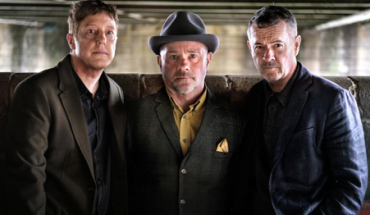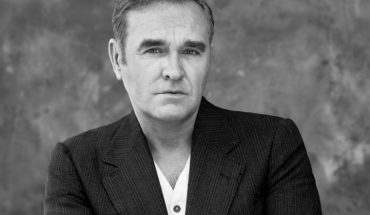Can you think of a pop star with a career and persona that evokes so many contradictory emotions in the public? Although Morrissey has his die-hard haters, he also attracts one of the most devout fan bases of all time. With The Smiths between 1982 and 1987 he has an almost perfect back catalogue, but after Johnny Marr abruptly left the band, his solo career has seen several missteps (do you remember Kill Uncle?) Despite being one of the most astute and lyrically gifted songwriters of all time, Morrissey has been rewarded with minimum radio airplay in recent years, and a noticeable lack of commercial success, much to his chagrin. The list of things he hates is long: politics, the British Royal Family, Margaret Thatcher, animal cruelty, the music industry, the USA as a predatory empire, Mike Joyce, Johnny Rogan, abusive headmasters, gang lords… the list goes on and on.
In essence, Morrissey is still a punk who despises guitar-solo extravagances, albeit one who croons pop melodies and leans against rock ‘n’ roll clichés. It’s clear the man is an eclectic engine of pertinent thoughts and an open encyclopedia of pop culture (from The New York Dolls to W.H. Auden), but he’s also a mess of contradictions, illnesses, cancellations and bad luck, all of which frame the atmosphere around his latest studio album. Preceded by a successful autobiography, a disastrous tour, health problems and five long years of anticipation due to the lack of a record label – a recurring theme in Morrissey´s career – World Peace Is None Of Your Business arrives with questions surrounding whether it will be a last whiplash of genius or a You Are the Quarry-like triumphant comeback.
In 1988 Morrissey declared his hatred of Thatcherism in ‘Margaret On The Guillotine’; almost three decades later, his lyrics contain a similar hate-filled rhetoric, though lack either the credibility of his previus work, nor the eloquence of classics like ‘The Queen Is Dead’, ‘Nowhere Fast’ or even the politically controversial, ‘The National Front Disco’. “The rich must profit and get richer and the poor must stay poor”, he sings in ‘World Peace Is None Of Your Business’ the opening track of his tenth studio album. “Each time you vote, you support the process”, he continues while hiding in a 60s-esque crooning voice. But it doesn’t sound quite right. Hence, it feels awkward and spurious. Like a rich man trying to woo the crowd with a combination of demagogy and cheap rhetoric – just like politicians.
‘Earth Is The Loneliest Place’ – a constant theme in Morrissey´s speech – is camouflaged between flamenco and Latin guitars while he prays that “humans are not very humane”. The Spanish-influenced ‘The Bullfighter Dies’ – Morrissey´s second straight jab towards animal cruelty – helps the listener makes sense of the singer’s views on humanity’s heartless nature, but once more the lyrical content is too weak, like dreadful poetry: “The bullfighter dies and nobody cries because we all want the bull to survive”). It all feels a bit clumsy for the man who once wrote ‘This Charming Man’ or ‘Everyday Is Like Sunday’.
‘Istanbul’, one of the strongest tunes on the record, brings back the good old atmospheres of classics like ‘Now My Heart Is Full’. Comparable to ‘Scandinavia’ – a dark track that defines the desolation in a parallel universe of utopian northern welfare – this Mediterranean story of a father and son constructed around prostitutes, gang lords and Turkish mayhem, confirms Morrissey´s 21st century obsession with places and cities as the epicenter for his melancholic poetry (see ‘Mexico’, ‘Come Back To Camden’ and ‘America Is Not The World’).
Beyond the opening four songs (all of which Morrissey introduced before the album was released with bizarre spoken-word videos) there is a pattern in several tracks: desolation, death and a non conforming approach towards society. In ‘Neal Cassady Drops Dead’, the glam-rock guitars of Your Arsenal are back while Neal´s ex-lover and beat icon Allen Ginsberg’s tears shampoo his beard and Morrissey emphasizes – once more – how much he despises children. If the opening tracks don’t do justice to Morrissey´s ability as a storyteller, others certainly do.
Morrissey takes inspiration from the decadent and glamorous Jobriath’s ‘I´m A Man’ to another level in one of the most memorable songs he has written in a very, very long time. Evocative of ambitious tracks like ‘Southpaw’ or ‘Life Is A Pigsty’, and with an industrial David Lynch-like claustrophobic 1:30 minute kickoff, ‘I´m Not A Man’ smashes “workaholics”, “Casanovas”, a “two-fisted hombre”, “beefaronis”, planet destroyers and the macho man stereotype.
Sonically and lyrically, ‘Kick The Bride Down The Aisle’ and ‘Staircase At The University’ are reminiscent of The Smiths. The former is another of Morrissey´s open letters despising matrimony a la ‘William It Was Really Nothing’, while the latter doesn´t quite have the majesty of ‘The Headmaster Ritual’, where Morrissey attacked the English education system. Here, the conclusion of the story is even worse: a suicidal student that just can´t stand the pressure anymore. On ‘Smiler With Knife’ things start to get serious; it’s also one of the weirdest tracks ever recorded by Morrissey. With a typical Boz Boorer guitar and unusual tempos and melodies, the track feels like a goodbye, a suicidal letter of somebody “sick to death of life” – an experience only comparable to the desperation presented in The Smiths´ ‘Asleep’.
In ‘Mountjoy’ (Ireland´s largest prison), all hope is gone and despite the message where he defends the poor, it doesn´t matter anymore. “Rich or poor we all lose”, cries Morrissey, while acoustic guitars similar to ‘Well I Wonder’ or ‘We´ll Let You Know’ play over verses that describe life in prison. But The Smiths allusions do not end here. ‘Oboe Concerto’, recalls the greatness of ‘Death Of A Disco Dancer’. A bass line as an intro, the same melody, fierce drums, and a rhythm that goes round and round – just brilliant.
Leaving behind the desolation and gloomy passages that define WPINOYB, ‘Kiss Me A Lot’ (or ‘Let Me Kiss You pt. 2′) is a simple and straight-forward pop song that preserves Morrissey´s well-known sexual ambiguity. Here, the embarrassment of being “someone that you physically despise” is gone, and instead he demands to be kissed “all over the place”.
Much of World Peace Is None Of Your Business brings the listener back to Morrissey´s classic catalogue: powerful melodies, allusions to The Smiths, pop culture references, a touch of glam, wistful acoustic guitars, memorable and eloquent verses, brilliant jingles, humor combined with darkness and introspective moments a la Viva Hate, Bona Drag and Vauxhall and I. After several listens the album is ultimately satisfying, and unquestionably a superior effort to the boisterous guitar-driven work in Years Of Refusal.
Alejandro De Luna
@TheSenseOfDoubt








